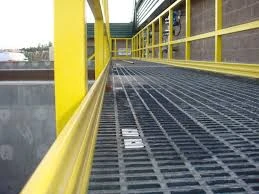
-
 Afrikaans
Afrikaans -
 Albanian
Albanian -
 Amharic
Amharic -
 Arabic
Arabic -
 Armenian
Armenian -
 Azerbaijani
Azerbaijani -
 Basque
Basque -
 Belarusian
Belarusian -
 Bengali
Bengali -
 Bosnian
Bosnian -
 Bulgarian
Bulgarian -
 Catalan
Catalan -
 Cebuano
Cebuano -
 China
China -
 China (Taiwan)
China (Taiwan) -
 Corsican
Corsican -
 Croatian
Croatian -
 Czech
Czech -
 Danish
Danish -
 Dutch
Dutch -
 English
English -
 Esperanto
Esperanto -
 Estonian
Estonian -
 Finnish
Finnish -
 French
French -
 Frisian
Frisian -
 Galician
Galician -
 Georgian
Georgian -
 German
German -
 Greek
Greek -
 Gujarati
Gujarati -
 Haitian Creole
Haitian Creole -
 hausa
hausa -
 hawaiian
hawaiian -
 Hebrew
Hebrew -
 Hindi
Hindi -
 Miao
Miao -
 Hungarian
Hungarian -
 Icelandic
Icelandic -
 igbo
igbo -
 Indonesian
Indonesian -
 irish
irish -
 Italian
Italian -
 Japanese
Japanese -
 Javanese
Javanese -
 Kannada
Kannada -
 kazakh
kazakh -
 Khmer
Khmer -
 Rwandese
Rwandese -
 Korean
Korean -
 Kurdish
Kurdish -
 Kyrgyz
Kyrgyz -
 Lao
Lao -
 Latin
Latin -
 Latvian
Latvian -
 Lithuanian
Lithuanian -
 Luxembourgish
Luxembourgish -
 Macedonian
Macedonian -
 Malgashi
Malgashi -
 Malay
Malay -
 Malayalam
Malayalam -
 Maltese
Maltese -
 Maori
Maori -
 Marathi
Marathi -
 Mongolian
Mongolian -
 Myanmar
Myanmar -
 Nepali
Nepali -
 Norwegian
Norwegian -
 Norwegian
Norwegian -
 Occitan
Occitan -
 Pashto
Pashto -
 Persian
Persian -
 Polish
Polish -
 Portuguese
Portuguese -
 Punjabi
Punjabi -
 Romanian
Romanian -
 Russian
Russian -
 Samoan
Samoan -
 Scottish Gaelic
Scottish Gaelic -
 Serbian
Serbian -
 Sesotho
Sesotho -
 Shona
Shona -
 Sindhi
Sindhi -
 Sinhala
Sinhala -
 Slovak
Slovak -
 Slovenian
Slovenian -
 Somali
Somali -
 Spanish
Spanish -
 Sundanese
Sundanese -
 Swahili
Swahili -
 Swedish
Swedish -
 Tagalog
Tagalog -
 Tajik
Tajik -
 Tamil
Tamil -
 Tatar
Tatar -
 Telugu
Telugu -
 Thai
Thai -
 Turkish
Turkish -
 Turkmen
Turkmen -
 Ukrainian
Ukrainian -
 Urdu
Urdu -
 Uighur
Uighur -
 Uzbek
Uzbek -
 Vietnamese
Vietnamese -
 Welsh
Welsh -
 Bantu
Bantu -
 Yiddish
Yiddish -
 Yoruba
Yoruba -
 Zulu
Zulu
fiberglass pipe
Understanding Fiberglass Pipes Advantages and Applications
Fiberglass pipes, also known as fiberglass-reinforced plastic (FRP) pipes, have gained significant popularity in various industries due to their unique properties and advantages over traditional pipe materials. These pipes are constructed using a composite material made up of glass fibers and resin, resulting in a lightweight yet robust product that can withstand harsh environmental conditions.
One of the primary advantages of fiberglass pipes is their corrosion resistance. Unlike metal pipes, which can rust and corrode over time, fiberglass pipes do not react with most chemicals, making them suitable for transporting corrosive substances like acids, salts, and alkalis. This property significantly extends the lifespan of the pipes, reducing maintenance costs and the frequency of replacements. Industries such as chemical processing, wastewater management, and oil and gas are particularly benefitted by this aspect of fiberglass pipes.
In addition to corrosion resistance, fiberglass pipes are also remarkably strong despite their lightweight nature. The combination of glass fibers and resin provides excellent tensile strength, allowing these pipes to withstand high pressure and stress. Moreover, the flexibility of fiberglass pipes permits them to be installed in various environments, including areas with shifting soil or seismic activity. This adaptability makes them an ideal choice for construction projects that require durable and reliable piping systems.
Another noteworthy characteristic of fiberglass pipes is their thermal insulation properties. Because fiberglass does not conduct heat as well as metals, these pipes can help maintain the temperature of the fluids being transported. This feature is especially important in applications involving hot or cold liquids where temperature stability is critical. Additionally, the reduced thermal conductivity can lead to lower energy costs in systems requiring heating or cooling.
fiberglass pipe

Fiberglass pipes are also more environmentally friendly compared to traditional materials. The manufacturing process of fiberglass pipes involves less energy and generates fewer greenhouse gas emissions than metal production. Additionally, their long lifespan and reduced need for maintenance contribute to a lower environmental impact over time. As industries increasingly focus on sustainability, fiberglass pipes present a viable alternative that meets both performance and environmental criteria.
The installation process for fiberglass pipes is relatively straightforward. Due to their lightweight nature, they are easier to transport and handle than heavy metal pipes, which can lead to reduced labor costs during installation. Furthermore, fiberglass pipes can be joined using a variety of methods, including adhesive bonding and mechanical fittings, providing flexibility in design and assembly.
Fiberglass pipes are widely used across various applications. They are commonly found in water supply systems, irrigation, chemical processing facilities, and even residential plumbing. Their versatility makes them suitable for both underground and above-ground installations. Additionally, as technology advances, the development of new fiberglass formulations continues to enhance their performance and broaden their application scope.
In conclusion, fiberglass pipes are an innovative solution for many industries looking to improve their piping systems. Their resistance to corrosion, strength, thermal insulation properties, and environmental benefits position them as a superior alternative to traditional materials. As industries evolve and seek more efficient and sustainable practices, fiberglass pipes are likely to play an increasingly important role in the future of piping technology.









